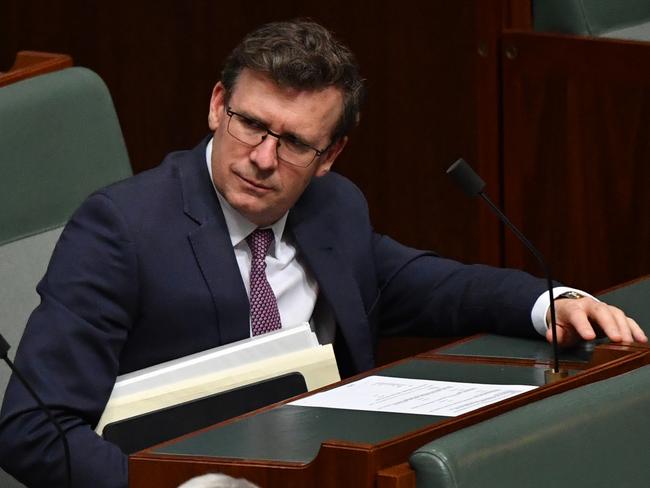Federal Education Minister Alan Tudge’s national curriculum balancing act will be tough, writes Christopher Pyne
I pity the new federal education minister, writes Christopher Pyne. He’s about to navigate a particularly tricky maelstrom.
Opinion
Don't miss out on the headlines from Opinion. Followed categories will be added to My News.
In some ways, I pity Australia’s newly minted Education Minister Alan Tudge.
He is hardworking, diligent and thoughtful. Tudge will need all those character traits, as well as a deep well of patience.
As education minister in the Abbott Government, one of the things that was apparent to me was the proliferation of experts and opinions. Everyone has a view about the right way to educate. Tudge will get to hear them all.
Almost everyone has been to school, so they know about school education.
Millions of Australians have experienced higher education, or have been in vocational training, and have an opinion about tertiary learning.
Then there are the professionals in institutions of learning, who all have a view about how their profession should be run.
Finally, there are the professionals who work in federal and state government departments. They regulate and organise everything from what is taught, to how and why it is taught and by whom.

Throw into that the ideology that permeates everyone’s views – from conservatives to progressives, from those who support traditional teaching methods to more modern methods. It’s quite a maelstrom!
The ministers at federal, state and territory level are required to navigate the rapids of this particularly tricky river.
Just last week, we have seen the most recent breakout over the content of the national curriculum.
The education ministers have on their desks the Australian Curriculum, Assessment and Reporting Authority’s latest proposal to alter the national curriculum.
It seems from what has been reported that, yet again, the role of the history of Western civilisation – which informs modern Australian society more than any other single factor – has been pruned.
It doesn’t surprise me.
One of the constant balancing acts in the school curriculum is between those who don’t want to teach current generations about the Judaeo-Christian foundations of our current society post-colonisation and those who believe you can’t know where you are going unless you know where you have been.
That means understanding the mistakes of the past two centuries and learning from them, embracing our pre-colonisation history and understanding our Indigenous heritage, both of which inform our story as much as the other. I wonder sometimes why people can’t stop fiddling and fighting about education and let change percolate naturally without social engineering and ideological pitched battles.
There was yet more fiddling with the education system by Flinders and Adelaide universities in 2020, when they decided to allow students to enrol in the 2021 academic year based on their Year 11 results. It seems perfectly innocuous. It isn’t.
One of the most important reasons that tertiary entrance requirements for higher education and training are based on the Australian Tertiary Admission Rank, which is mostly completed in Year 12, is because it is the same assessment for everyone.
The South Australian Certificate of Education is managed equally for all by the South Australian Government. While every system has its flaws, it’s pretty reliable and it’s fair.
Whether you attend Scotch College, Walford, Adelaide or Renmark high schools, every student who is doing the same course or subject is assessed in the same way.
Using the Year 11 results for entry into university ignores that equity.
While Adelaide and Flinders universities allowed the suspension of that equity in 2020, they should not do so in 2021.
A school-based assessment, rather than an externally controlled one, should not become common practice in South Australia.
There are schools where students are trained and primed for results. There are schools where students are taught to be self-educators and able to thrive in higher education, where there is less supervision.
There are schools that are less fortunate than others, in their means, their proximity to the best educators and their facilities. There are schools that are a combination of all these things.
All of those differences will show up, particularly in Year 11 results, if they are school assessed.
The reason for external assessment is to remove, as much as is possible, the advantages and disadvantages inherent in where you go to school and how much support you do or don’t have, depending on your circumstances of family, peers, location and wealth.
There are other reasons, too, for external assessment based on a common model.
But on social equity grounds alone, that is a good enough reason for all three universities to adopt the same approach to the admission of their students now that the worst excesses of the coronavirus pandemic are receding.
The writer is an Industry Professor at University of South Australia and advises Good to Great Schools



